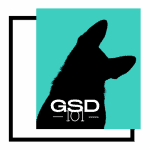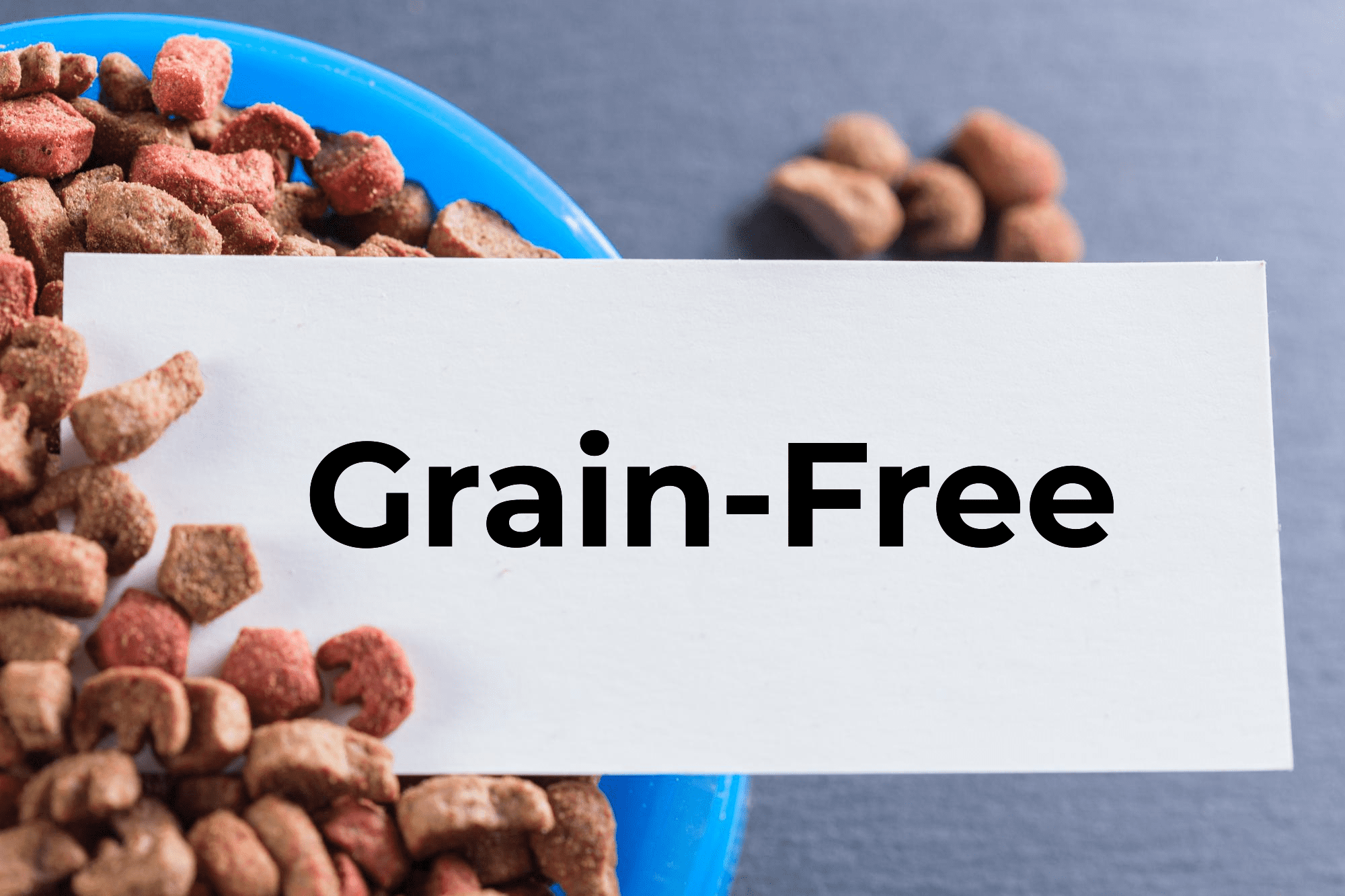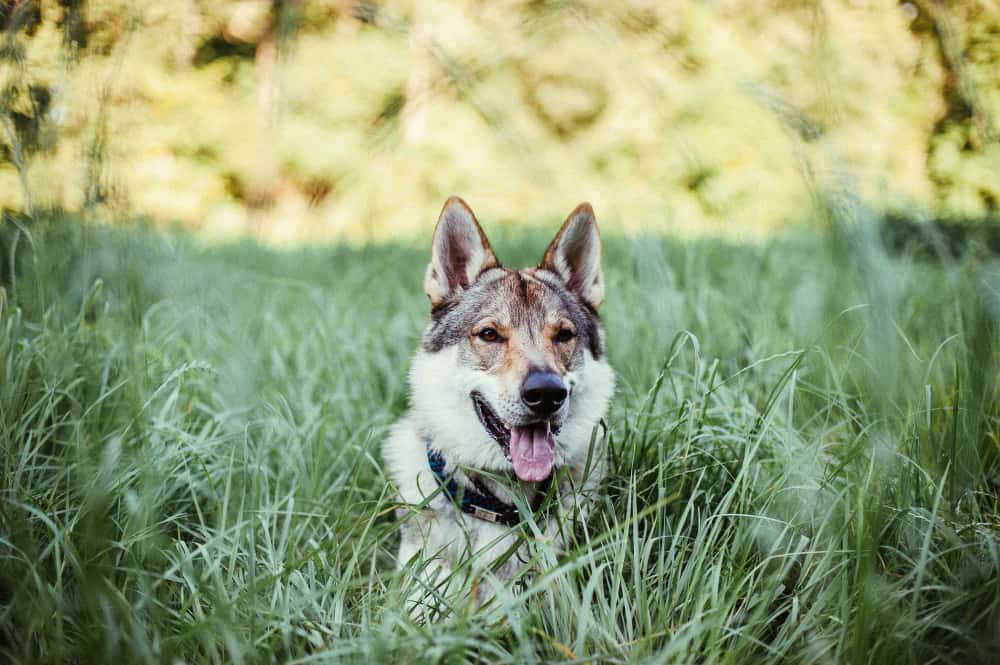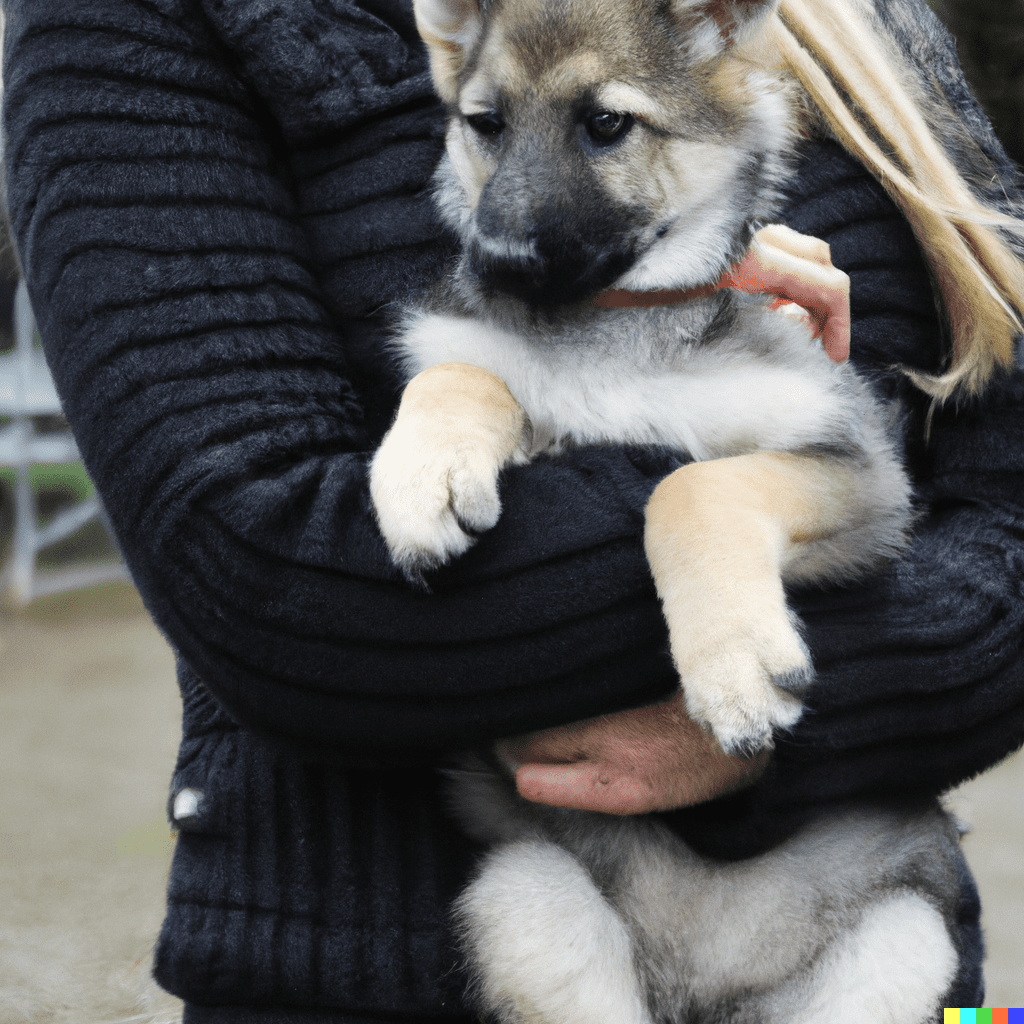In recent years, grain-free dog food has become popular. Supporters claim grains are responsible for many dogs’ health issues, and grain-free diets improve their dogs’ overall health. Others argue grains are necessary for dogs’ digestion, and that grain-free diets can cause heart issues. The question is: Are grains good or bad for large dogs like German Shepherds?
Grain-free dog food can be a good option to relieve grain allergy, sensitivities, or stomach issues commonly found in German Shepherds. Owners should avoid low-quality or legume-heavy grain-free diets. After all, it’s more important to buy high-quality dog food regardless it is grain-free or not.
Like everything else in the world, there are always two sides to a coin. Read on to learn about the benefits and drawbacks of grain-free dog food, so you can make the best-informed decision for your German Shepherd dog. We have included videos and case studies to help you make an educated decision when it comes to grain-free dog food.
What is grain-free dog food?
Grain-free dog foods are commercially produced dog food formulas without the usual grain ingredients. Grains, such as the following, are the main carbohydrate source for many dog foods:
- Wheat
- Soy
- Corn
- Rice
- Oats
- Barley
- Rye
When the grains are removed, they are replaced with other carbohydrates such as sweet potatoes, lentils, peas, and quinoa.
Why is grain-free dog food gaining popularity recently?
Grain-free dog foods gained popularity around the same time keto, paleo, and other popular human diets reached their height.
The idea behind all of these diets is better overall health. Proponents of these diets are trying to get away from processed foods and simulate the most natural way of eating.
With dogs, in particular, German Shepherd owners latched onto this diet to relieve the inflammation and dietary issues they were seeing in their pets.
Do dogs need grain for carbohydrate consumption?
According to The German Shepherd Dog by Horst Hegwald-Kawich, dogs only need about 5 – 8 % of carbohydrates in their daily diet.
Some studies suggest dogs don’t even need carbohydrates at all.
Believe it or not, no researcher has been able to prove that they need carbs in their diets. Yet, many dog foods have a whooping 46 – 74% of carbohydrates in their formulas – and this is often hidden from you.
Dog food companies are not required to report how many carbohydrates they put into their foods. If you want to learn more about how to identify the amount of carbohydrates in dog food, check out this below:
What does grain do in a dog’s digestion?
Grains are a great source of dietary fiber, which is helpful in passing bowel movements. It also contain many vitamins and minerals beneficial to dogs.
Grains, therefore, are also good for adding weight to active dogs, like the German Shepherd.
The main problem isn’t with grains, but with low-quality grains. Here are the potential drawbacks of feeding your dog with grain:
- Companies include carbohydrates in their dry foods to retain the kibble shape. Also, these carbs are cheaper than proteins.
- Bacteria feed on carbohydrates in your dog’s gut. Then, they excrete harmful chemicals that can poke holes in your dog’s intestines, causing a leaky gut.
Three bad grains (the cheap substitutes for meat) to avoid
When you are buying dog food, there are some keywords to look for to avoid getting low-quality ingredients that are substitutes for meat.
For example, if you see “corn gluten meal,” “wheat middlings,” or “wheat flour,” these grain ingredients are low quality and add little nutrition to your dog’s diet.
#1 Refined Grains
In general, whole grains are better for German Shepherds than refined grains. Refined grains are milled grains with their husks, bran, and germ layer removed. The process of milling removes much of the nutritional value.
These are cheap and of poor quality. For example, wheat gluten powder and wheat middlings (floor sweepings) are leftovers from human food that have zero nutritional value.
#2 Industrial Grains
Industrial grains are modified and bred to increase yield and resist pests. These grains are less nutritious than ancient grains. They are also more likely to contain pesticides.
Examples of industrial grains are wheat, corn, and rice. Corn gluten, for instance, is often added to dog food, which is a byproduct of corn syrup. This is difficult for dogs to digest.
Ancient grains are grains that have not changed much over the years. They are more nutritious and often are not treated with pesticides. Some examples of ancient grains are quinoa, amaranth, buckwheat, and millet.
#3 Gluten Grains
Grains like wheat, spelt (also known as dinkel wheat or hulled wheat), rye, and barley all contain gluten.
On its own, gluten is not bad, but dogs can develop sensitivities to gluten or can have allergies to it.
While corn, rice, and oats are gluten-free on their own, sometimes they are mixed with wheat.
| Grain Types | Definition | Examples |
| Refined Grains | Milled grains with their husks, brain, and germ layer removed. | • Wheat gluten powder • Wheat middlings |
| Industrial Grains | Genetically modified grains are bred to increase yield and resist pests. (often has pesticides) | • Wheat • Corn (corn gluten) • Rice |
| Gluten Grains | Gluten is a natural protein found in some types of grains that dogs can become sensitive to. | • Wheat • Spelt • Rye • Barley |
Case study: What if a dog is fed grain-free dog food for his whole life?
Oliver was a three-and-a-half-year-old Golden Retriever who had been fed on a grain-free diet his whole life.
Although seemingly healthy, Oliver had a heart murmur. She was diagnosed with dilated cardiomyopathy (DCM), a disease that affects the heart.
Oliver was then switched to a regular grain-filled diet and seemed to improve. Unfortunately, he died 6 months later of a fatal heart arrhythmia.
Around this same time in 2018, many other Golden Retrievers were being diagnosed with DCM, and vets were starting to notice.
Taurine deficiency is often linked with DCM. Taurine is an amino acid found in meats. The commonality between all of these dogs was boutique, exotic, grain-free dog foods (BEG).
Many of these dog foods were made with lamb, rice bran, and beets.
The FDA began to study grain-free diets and didn’t find anything significantly different between grain-filled and grain-free dog foods.
Instead, they recommend dog owners buy dog food from reputable brands that have been around for a while. These companies have conducted feeding trials and use standard ingredients.
More posts on feeding your German Shepherds

Must read:
- The Best & Worst Dog Foods Ever – According to a 45-Year Veterinarian
- Worst Dog Food for German Shepherds
- Is Grain-Free Good for German Shepherds?
- How to Stop Food Aggression Towards People in German Shepherds?
Choosing the best dog food:
- The Best Food For German Shepherd Puppies
- Best Cheap Dog Food for German Shepherds (Dry and Wet Food)
- Best Dry Dog Food for Your German Shepherd Puppies: How to Choose?
- The Best Dog Food for a 12 Months German Shepherd
- What To Look For When Buying Dog Food for German Shepherds?
- Is Royal Canin German Shepherd Dog Food Any Good? Read This First
On feeding your German Shepherd:
- How Much Does It Cost to Feed a German Shepherd Puppy in the First Year?
- How Much Does an 8-Week-Old German Shepherd Puppy Eat in a Day? A Feeding Guide
- How Much Does a 3-Month-Old German Shepherd Dog Eat in a Day? A Feeding Guide
- How Much Does a 6-Month-Old German Shepherd Dog Eat in a Day? A Feeding Guide
- Can Dogs Eat Vanilla Ice Cream?
- 17 Human Foods That Are Safe For German Shepherds to Eat
- The Benefits of Feeding German Shepherds Raw Food
- How to Feed Your Dog Raw Food on a Budget?
- Is It Ok to Give Raw Meat to My German Shepherd Puppy?
For picky eaters:
What do vets think about grain-free dog foods?
As a general rule, veterinarians recommend owners be cautious about the type of grain-free foods they choose for their dogs. If there isn’t a medical need for switching to grain-free, then other diets may be more beneficial.
However, each dog is unique, and as long as the label doesn’t include major ingredients such as legumes that can cause health issues, grain-free can be a good choice for some dogs.
Dr. Stephen Rosenthal, a veterinarian cardiologist at CVCA, states in a Facebook live post in December 2018:
“At this time, if there is not a clinical reason (i.e. food allergies or gastrointestinal upset) for use of a limited ingredient, unique protein source (kangaroo, alligator, bison, etc.) diet, we would suggest using alternative diets. Consultation with a board-certified veterinary nutritionist should be considered. Another possible consideration is to use two/three pet foods from different manufacturers including a diet that is not full of legumes (lentils, chickpeas, peas) and has some grain in the product.”
Dr. David Bruce, a veterinarian in Virginia, explains in a news segment. See the video below:
“There’s a lot more to food than whether it has grains in it. You want to stick to a good food from a major manufacturer, and one that your dog eats well. There is no one diet that is right for all dogs.”
Union Lake Veterinary Hospital in Michigan, an established practice of 74 years, suggests in 2019:
“Purina, Royal Canin, and Hill’s diets are a good source of nutrition without the added legumes–but these are not the only safe dog foods. Even grain-free dog foods should be fine if the ingredients linked to DCM aren’t listed in the first 10 ingredients. Don’t change your pet’s diet if they are on a prescription or special diet for a health condition without checking with your veterinarian.”
The Pros: What are the benefits of switching to grain-free dog food for German Shepherds?
Grain-free dog foods can be beneficial to German Shepherds in many ways. Since GSDs are prone to stomach sensitivities, grain-free diets often reduce these issues.
Higher quality ingredients
The most important benefit of grain-free dog food is the higher quality ingredients. These dog foods don’t fill their formulas with large portions of grains as a cheap alternative to proteins. Instead, they use better protein sources.
Reduces stomach issues
One main benefit of a grain-free diet is reducing stomach issues. Gluten-intolerant German Shepherds often suffer from diarrhea, gas, and vomiting due to the common grains in dry dog food. With these grains eliminated, they have more solid stools and fewer stomach cramps.
Produces a shinier coat and healthier skin
Grain-free dry foods often have higher fat and healthy oil content with ingredients such as duck fat, flaxseed, and salmon. German Shepherds have thick, double coats. These fats and oils add shine to your dog’s coat.
German Shepherds also experience skin irritations in response to many grains. With these grains eliminated, their skin becomes less itchy and irritated.
Reduces bad breath
Grain-free diets remove many of the causes of bad breath. Gas, vomiting, and excess carbohydrates attract more mouth bacteria and tartar build-up. These all combine to make your dog’s breath disgusting.
However, when your dog goes grain-free, he will have better breath and a healthier mouth.
Increases energy levels
The increase in high-quality proteins in grain-free dog food gives your GSD more energy. The alternative carbohydrates are also easier for your dog to digest and process. This results in more energy generation. This is important for German Shepherds who are very active dogs.
The Cons: What are the disadvantages of switching to grain-free dog food for German Shepherds?
Although there are many benefits to switching to a grain-free diet, there are also some concerns. In fact, the FDA has been investigating grain-free dog foods in a study linked to dilated cardiomyopathy (DCM).
Not extensively studied
This is a newer diet, and as such, it has not been extensively studied. Typical dry dog food formulas have been around for years, and numerous studies have been performed on them.
Many Boutique, Exotic Ingredient, Grain-Free (BEG) dog foods have had few feeding trials and supplement their mixes with legumes, known to cause an increase in taurine deficiency.
Grains are replaced with carbohydrates
Even though grains are being eliminated, other carbohydrates are still present in these dog foods. Most of them are replaced with lentils, legumes, and sweet potatoes.
All of these sources of carbohydrates are in the nightshade family, which some studies suggest it may block the uptake of amino acids in dogs.
Exotic proteins are not always the best
Many grain-free diets utilized exotic proteins such as kangaroo meat. These proteins have not been extensively studied, so their effect on your dog’s nutrition is unknown.
Grains are not the most common food allergies
Grains are often touted as being the main culprit for stomach sensitivities, but in fact, they are not the most common food allergies.
Dogs are more often allergic to beef, chicken, eggs, dairy, and lamb.
So, although switching to grain-free can initially relieve gastrointestinal symptoms, if your dog has a sensitivity to the protein rather than the grain, the symptoms will eventually return.
Grain-free dog foods are usually pricier
Higher quality ingredients come at a price. These dog foods can be much more expensive than grain-containing dog foods, which can be hard when you are on a tight budget.
Over to you
There are many benefits and drawbacks to switching to a grain-free diet. Deciding whether or not grains are good for your German Shepherd dog should be based on each individual dog’s specific need. You, as your dog’s greatest advocate, know the needs of your dog and can choose a food that serves him best.
More on German Shepherd Allergies

- Most Common German Shepherd Allergies: What You Need to Know
- How to Help Your German Shepherd With Allergies?
- Ear Allergy in German Shepherds: Everything You Need to Know
- Chicken Allergy in German Shepherds: Everything You Need to Know
- German Shepherd Skin Allergies: Best Tips for Relief
- How to Stop Itching in German Shepherds? Effective Remedies Owners Use
- You may also like:
- Is Pet Insurance Worth It for Your German Shepherd Dog?
- Is Grain-Free Good for German Shepherds?
- Worst Dog Food for German Shepherds: Things to Avoid
- Best Dog Food for German Shepherds with Sensitive Stomach
- German Shepherd with Diarrhea: A Feeding Guide
- Dog Diarrhea: Simple and Effective Home Remedies That Dog Owners Use
- Constipated Dog: Causes and Easy Home Remedies

Sara is a writer, wife, mother of two, and animal lover. She enjoys crafting, gardening, and discovering new nature trails to explore.



